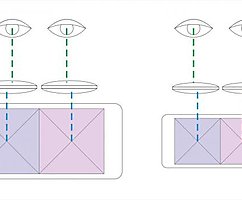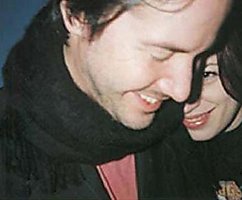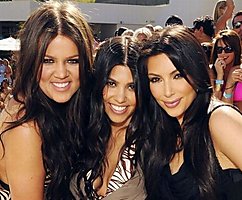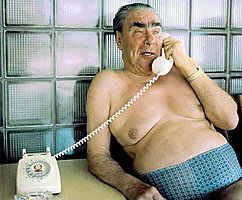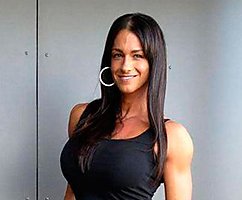Carl Jung on the mid-life crisis
 Bashny.Net
Bashny.Net
Jung about the basis and cause of mid-life crisis, deep, amazing change of heart. But first we will focus on issues young age. This stage extends from directly posleprodazhnogo time until around mid-life, which falls in the age somewhere between thirty-five and forty years.

If you try to extract almost inexhaustible variety of individual problems young age common and most importantly, you encounter a specific characteristic, inherent, it seems that all the problems of this stage: it is expressed in varying degrees of being stuck in a child's stage of consciousness, the resistance existing in and around us the forces of fate that are trying to involve us in the world.
Something in us wishes to remain a child, to be completely unconscious, or at least to understand only the "I" and to reject all foreign, in the limiting case, to subordinate all else to his will.
I would like to do nothing, and if it is something to do for pleasure or to assert his authority. This is something like inertia of matter, which in turn is reflected in the exterior of the previous phase, the consciousness which is less already, and selfish, than the consciousness of the dualistic phase where the individual is faced with the need to recognize and accept other, strange how their lives and "also-I". (...)
Achievement, usefulness are the ideals that seem to point the way out of the chaos of problems. They are the guiding stars for the extension and strengthening of our physical life, our rooting in the world but not for the further development of human consciousness, that is what is called culture. For a young age this decision is quite normal, and it is, anyway, better than getting stuck solely on their problems. (...)
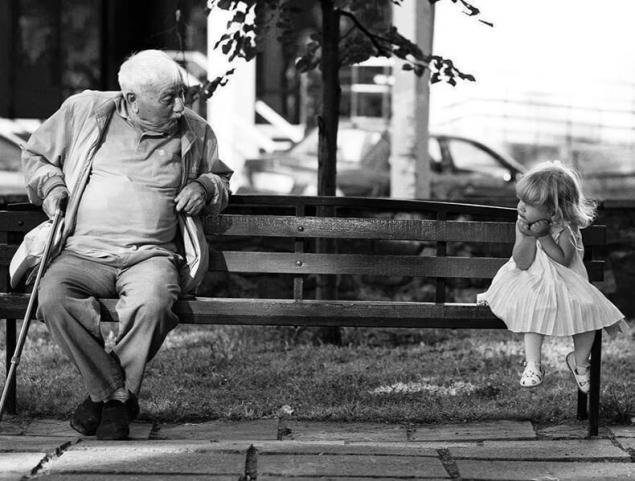
The closer the mid-life and the more able to establish their own setting and social situation, the more it seems that the correct one is life line, true to the ideals and principles of conduct. Therefore, in the future, there is the idea that they are immutable, and there is a desire forever for them to cling to. However, it ignored the essential fact that the adoption of social goals is due to the wholeness of the individual. Much too much — the life that could be lived differently, — continues to lie in the closets covered with dust memories, sometimes even appearing glowing coals under grey ashes. (...)
A very common neurotic disorders of adulthood have one thing in common: they are trying to move the psychology phases of youth across the threshold of adulthood. Who does not know those touching older gentlemen, mired in the hopeless philistinism, which again and again get out of God has long been forgotten College years and only returning to the past, to his heroic Homeric time, able to ignite the flame of life? However, they have, as a rule, there is an advantage that cannot be underestimated — they are not neurotics, but mostly just boring and stereotypical people.
Rather, the neurotic is one who never managed to realize in the present what he would want, and who therefore cannot look past. Just as before he failed to get away from childhood and now he is unable to get rid of the phase of youth. Perhaps he can't find himself in the gloomy thoughts of aging and therefore, the stress look back, because looking forward for him unbearable.
As infantile people afraid of the unknown world and life, and adult eschews the second half of life, as there he faces the unknown challenges, or like this means for his victims and losses which he can not accept, or as if his last life was so beautiful and so dear to him that he can not without it.
But maybe it's just the fear of death? To me, however, this seems unlikely, because as a rule death is still far, and therefore somewhat abstract. Experience shows that the basis and cause of all the difficulties of this transition period is rather deep, an amazing change of heart.
In order to to characterize it, I'd like to give a comparison on the daily movement of the sun. This refers to the sun, animate human and endowed with a momentary sense of the human mind.
In the morning it comes out of the night sea of the unconscious, illuminating the wide, colorful world, and the higher it rises in the sky, the farther it spreads its rays. In this extension of its sphere of influence, is associated with sunrise, the sun will see their purpose and discern their higher purpose is to climb as high as possible and thus to spread his grace.
With this conviction the sun reaches Meridian height the unexpected — unexpected because due to its one-time individual existence, it could not know in advance own climax. At twelve o'clock the day starts at sunset. It represents the inversion of all values and ideals in the morning. The sun becomes inconsistent. It kinda takes its rays. Light and heat subside until the complete extinction. (...)
The midday coup even changes our physical properties. For the people of the South especially it is characteristic that in older women there is a hoarse, low voice, mustache, hard facial features, and other masculine characteristics. Conversely, male physical habitus is weakened female features, such as increased body fat and a softer expression. (...)
Even more than physically, this change is manifested in the mental. How often, for example, it happens that a man aged forty-five to fifty years is ruined, and then the woman puts on pants and opens the shop where the man is that plays the role of his assistant. There are many women, who have social responsibility and social consciousness awaken all alone after forty years of life.
In modern business circles, especially in America, to break down, nervous breakdown, after forty years, — a phenomenon quite common. If we were to examine this poor guy more carefully, it turns out that the destruction is the same, men's style, and what remains is a feminized man.
Conversely, in those circles, there are women who in these years reveal the extraordinary courage and strength of mind, pushed back into the background heart and feeling. Very often these changes are accompanied by a different kind of marital disaster; in fact it is not so difficult to imagine what happens when a husband shows his tender feelings and the wife her mind.
The worst part is the fact that intelligent and educated people live, even unaware of the possibility of such changes. They come in the second half of life totally unprepared.
Or, perhaps, is where some educational institutions, and not just middle and high schools for forty years that would prepare them for the future with its demands as well as enter into a knowledge of the world and the lives of our young people, schools and institutions?
No, we are entering the second half of life is extremely unprepared; worse, we do it under the influence of the false notion that our truths and ideals.
We can't live a night life on the same program that morning, because what a lot in the morning, there will be little in the evening, and what is true in the morning, evening is already wrong. I had to cure too many older people and look into the innermost parts of their souls to doubt the truth of this basic rule.
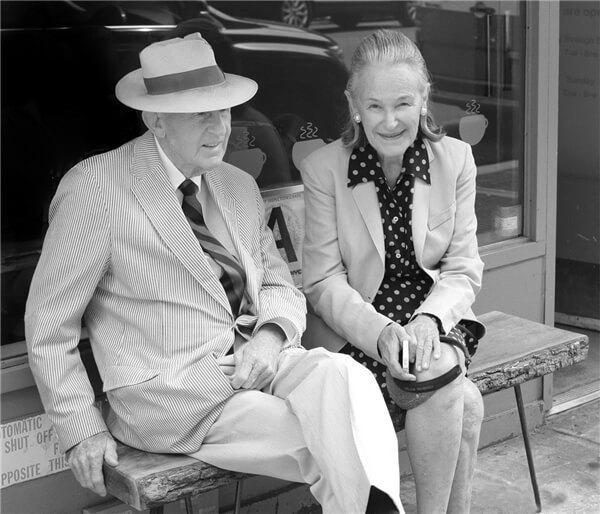
Aging people should know that his life is not increased or expanded; on the contrary, the inexorable inner process leads to a narrowing of life. If the young person is too much engaged in their own person — it is almost a sin or at least danger;for the aging person to pay serious attention to his Self — it is a duty and necessity.
The sun hides its rays to illuminate itself after having lavished its light to the world. Instead, many older people prefer to turn into hypochondriacs, hoarders, narrow pedants and landatores temporis acti, or even to stay forever young — a pathetic replacement for the illumination of the Self, but inevitable consequence of the delusion that the second half of life must be governed by the principles first.
I said that we have no schools for forty years. This is not entirely true. Our religion have long been, are, or ever were such schools. But for many people they still are? How many older people were indeed brought up in one of these schools for the secrets of the second half of life, old age, death and eternity?
Of course, people wouldn't have lived seventy and eighty years old if the life expectancy does not correspond to the meaning of his look.So the evening of his life also must have its meaning and purpose, it cannot be a miserable appendage of the morning.
Undoubtedly, the sense of am is the development of the individual, the device in the outside world, the procreation and care of offspring. This is the obvious natural purpose. But if this goal is achieved, and achieved even with an excess of whether the acquisition of money, the further conquest and expansion space of its existence go beyond a reasonable point?
He who in this way transfers without the need for the law the morning, that is the natural goal, in the second half of life must reckon with the emotional loss just as the young man trying to move his children's selfishness in a Mature age, must pay for it with their error social failure. The acquisition of money, social existence, family, posterity represent only a nature, but not culture. Culture is on the other side natural goals. Then, perhaps, culture is the meaning and purpose of the second half of life?
In primitive tribes, for example, we see that almost always, the elderly are the keepers of the ordinances and laws, and that is weakening the culture of the tribe. As is the case in this sense we have? Where the wisdom of our elders? Where their secrets and dreams? Most elderly people have almost trying to emulate the young. In America it is considered, that is to say, an ideal, if the father is a brother to their sons, and the mother where possible — the younger sister of his daughter. (...)
Of course, if these people had managed to fill to the brim and emptied to the bottom our your life, then now they would feel, perhaps, otherwise; they would not hold everything that could burn, would burn, and the serenity of old age would have been desirable.
But we shouldn't forget thatfew people know how to live and what the art of living is also the most important and most rare of all the arts — to drain the Cup of beauty who managed to do that? So for most people, too much remains nepareiziem — often even the opportunities they could not realize at all desire, and thus they overstep the threshold of old age with unsatisfied claims that may inadvertently cause them to look back.
Such people look back especially detrimental. They probably need a little perspective, the aiming point in the future. So all major religions have their assurance regarding the afterlife, has its own standing over a world target, which allows a mortal to live the second half of life with the same focus as the first. But how convincing to the modern man expand and climax of life, as dubious or downright incredible for him, the idea of continuation of life after death. (...)
Here, however, awakened my conscience of the doctor, who tells me to make some important considerations on this issue. I found a purposeful life in General better, richer and healthier than an aimless, it is better to go forward with the times, ago than against time.
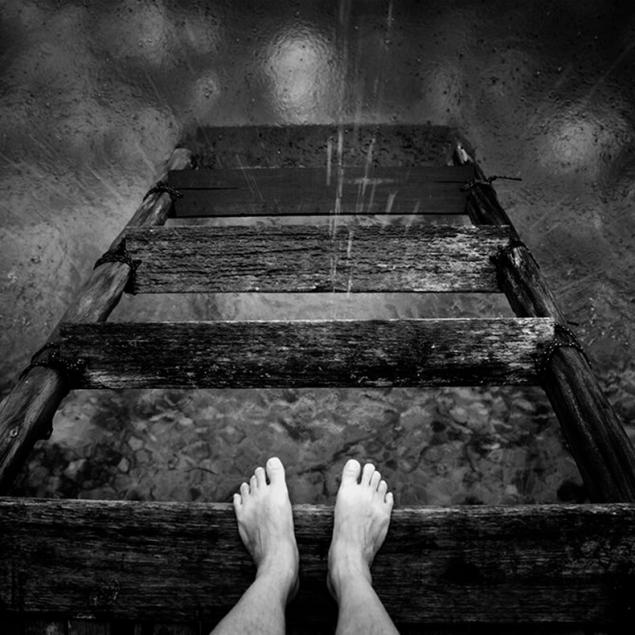
Healer of the soul an elderly man, unable to part with life, seems to be as weak and sick as a young man, who is unable to build it. In fact, as in that and in other case it is often a question about one and the same childish greediness, the same fear, the same obstinacy and willfulness.
As a physician I am convinced that, so to speak, more hygienic to see in death a goal toward which to strive, and that resistance to it is something unhealthy and abnormal because it makes the second half of life is pointless. Therefore, based on the perspective of mental health, I find great wisdom in all religions, which have the purpose of standing above the world.
Scenarios of the fate and role options in this world for everyoneIf you are constantly thinking about what you don'T like, it will definitely be in your life
If I live in a house and know that in two weeks it will collapse on my head, these thoughts will cause damage to all my vital functions; but if the contrary, I feel sure, will be able calmly and normally to live in it. Therefore, from a psychotherapeutic point of view it would be better if we could think that death is just a transition period, an unknown part of a long process of life.published
Source: cameralabs.org/10779-iskusstvo-zhit-karl-yung-o-krizise-serediny-zhizni

If you try to extract almost inexhaustible variety of individual problems young age common and most importantly, you encounter a specific characteristic, inherent, it seems that all the problems of this stage: it is expressed in varying degrees of being stuck in a child's stage of consciousness, the resistance existing in and around us the forces of fate that are trying to involve us in the world.
Something in us wishes to remain a child, to be completely unconscious, or at least to understand only the "I" and to reject all foreign, in the limiting case, to subordinate all else to his will.
I would like to do nothing, and if it is something to do for pleasure or to assert his authority. This is something like inertia of matter, which in turn is reflected in the exterior of the previous phase, the consciousness which is less already, and selfish, than the consciousness of the dualistic phase where the individual is faced with the need to recognize and accept other, strange how their lives and "also-I". (...)
Achievement, usefulness are the ideals that seem to point the way out of the chaos of problems. They are the guiding stars for the extension and strengthening of our physical life, our rooting in the world but not for the further development of human consciousness, that is what is called culture. For a young age this decision is quite normal, and it is, anyway, better than getting stuck solely on their problems. (...)

The closer the mid-life and the more able to establish their own setting and social situation, the more it seems that the correct one is life line, true to the ideals and principles of conduct. Therefore, in the future, there is the idea that they are immutable, and there is a desire forever for them to cling to. However, it ignored the essential fact that the adoption of social goals is due to the wholeness of the individual. Much too much — the life that could be lived differently, — continues to lie in the closets covered with dust memories, sometimes even appearing glowing coals under grey ashes. (...)
A very common neurotic disorders of adulthood have one thing in common: they are trying to move the psychology phases of youth across the threshold of adulthood. Who does not know those touching older gentlemen, mired in the hopeless philistinism, which again and again get out of God has long been forgotten College years and only returning to the past, to his heroic Homeric time, able to ignite the flame of life? However, they have, as a rule, there is an advantage that cannot be underestimated — they are not neurotics, but mostly just boring and stereotypical people.
Rather, the neurotic is one who never managed to realize in the present what he would want, and who therefore cannot look past. Just as before he failed to get away from childhood and now he is unable to get rid of the phase of youth. Perhaps he can't find himself in the gloomy thoughts of aging and therefore, the stress look back, because looking forward for him unbearable.
As infantile people afraid of the unknown world and life, and adult eschews the second half of life, as there he faces the unknown challenges, or like this means for his victims and losses which he can not accept, or as if his last life was so beautiful and so dear to him that he can not without it.
But maybe it's just the fear of death? To me, however, this seems unlikely, because as a rule death is still far, and therefore somewhat abstract. Experience shows that the basis and cause of all the difficulties of this transition period is rather deep, an amazing change of heart.
In order to to characterize it, I'd like to give a comparison on the daily movement of the sun. This refers to the sun, animate human and endowed with a momentary sense of the human mind.
In the morning it comes out of the night sea of the unconscious, illuminating the wide, colorful world, and the higher it rises in the sky, the farther it spreads its rays. In this extension of its sphere of influence, is associated with sunrise, the sun will see their purpose and discern their higher purpose is to climb as high as possible and thus to spread his grace.
With this conviction the sun reaches Meridian height the unexpected — unexpected because due to its one-time individual existence, it could not know in advance own climax. At twelve o'clock the day starts at sunset. It represents the inversion of all values and ideals in the morning. The sun becomes inconsistent. It kinda takes its rays. Light and heat subside until the complete extinction. (...)
The midday coup even changes our physical properties. For the people of the South especially it is characteristic that in older women there is a hoarse, low voice, mustache, hard facial features, and other masculine characteristics. Conversely, male physical habitus is weakened female features, such as increased body fat and a softer expression. (...)
Even more than physically, this change is manifested in the mental. How often, for example, it happens that a man aged forty-five to fifty years is ruined, and then the woman puts on pants and opens the shop where the man is that plays the role of his assistant. There are many women, who have social responsibility and social consciousness awaken all alone after forty years of life.
In modern business circles, especially in America, to break down, nervous breakdown, after forty years, — a phenomenon quite common. If we were to examine this poor guy more carefully, it turns out that the destruction is the same, men's style, and what remains is a feminized man.
Conversely, in those circles, there are women who in these years reveal the extraordinary courage and strength of mind, pushed back into the background heart and feeling. Very often these changes are accompanied by a different kind of marital disaster; in fact it is not so difficult to imagine what happens when a husband shows his tender feelings and the wife her mind.
The worst part is the fact that intelligent and educated people live, even unaware of the possibility of such changes. They come in the second half of life totally unprepared.
Or, perhaps, is where some educational institutions, and not just middle and high schools for forty years that would prepare them for the future with its demands as well as enter into a knowledge of the world and the lives of our young people, schools and institutions?
No, we are entering the second half of life is extremely unprepared; worse, we do it under the influence of the false notion that our truths and ideals.
We can't live a night life on the same program that morning, because what a lot in the morning, there will be little in the evening, and what is true in the morning, evening is already wrong. I had to cure too many older people and look into the innermost parts of their souls to doubt the truth of this basic rule.

Aging people should know that his life is not increased or expanded; on the contrary, the inexorable inner process leads to a narrowing of life. If the young person is too much engaged in their own person — it is almost a sin or at least danger;for the aging person to pay serious attention to his Self — it is a duty and necessity.
The sun hides its rays to illuminate itself after having lavished its light to the world. Instead, many older people prefer to turn into hypochondriacs, hoarders, narrow pedants and landatores temporis acti, or even to stay forever young — a pathetic replacement for the illumination of the Self, but inevitable consequence of the delusion that the second half of life must be governed by the principles first.
I said that we have no schools for forty years. This is not entirely true. Our religion have long been, are, or ever were such schools. But for many people they still are? How many older people were indeed brought up in one of these schools for the secrets of the second half of life, old age, death and eternity?
Of course, people wouldn't have lived seventy and eighty years old if the life expectancy does not correspond to the meaning of his look.So the evening of his life also must have its meaning and purpose, it cannot be a miserable appendage of the morning.
Undoubtedly, the sense of am is the development of the individual, the device in the outside world, the procreation and care of offspring. This is the obvious natural purpose. But if this goal is achieved, and achieved even with an excess of whether the acquisition of money, the further conquest and expansion space of its existence go beyond a reasonable point?
He who in this way transfers without the need for the law the morning, that is the natural goal, in the second half of life must reckon with the emotional loss just as the young man trying to move his children's selfishness in a Mature age, must pay for it with their error social failure. The acquisition of money, social existence, family, posterity represent only a nature, but not culture. Culture is on the other side natural goals. Then, perhaps, culture is the meaning and purpose of the second half of life?
In primitive tribes, for example, we see that almost always, the elderly are the keepers of the ordinances and laws, and that is weakening the culture of the tribe. As is the case in this sense we have? Where the wisdom of our elders? Where their secrets and dreams? Most elderly people have almost trying to emulate the young. In America it is considered, that is to say, an ideal, if the father is a brother to their sons, and the mother where possible — the younger sister of his daughter. (...)
Of course, if these people had managed to fill to the brim and emptied to the bottom our your life, then now they would feel, perhaps, otherwise; they would not hold everything that could burn, would burn, and the serenity of old age would have been desirable.
But we shouldn't forget thatfew people know how to live and what the art of living is also the most important and most rare of all the arts — to drain the Cup of beauty who managed to do that? So for most people, too much remains nepareiziem — often even the opportunities they could not realize at all desire, and thus they overstep the threshold of old age with unsatisfied claims that may inadvertently cause them to look back.
Such people look back especially detrimental. They probably need a little perspective, the aiming point in the future. So all major religions have their assurance regarding the afterlife, has its own standing over a world target, which allows a mortal to live the second half of life with the same focus as the first. But how convincing to the modern man expand and climax of life, as dubious or downright incredible for him, the idea of continuation of life after death. (...)
Here, however, awakened my conscience of the doctor, who tells me to make some important considerations on this issue. I found a purposeful life in General better, richer and healthier than an aimless, it is better to go forward with the times, ago than against time.

Healer of the soul an elderly man, unable to part with life, seems to be as weak and sick as a young man, who is unable to build it. In fact, as in that and in other case it is often a question about one and the same childish greediness, the same fear, the same obstinacy and willfulness.
As a physician I am convinced that, so to speak, more hygienic to see in death a goal toward which to strive, and that resistance to it is something unhealthy and abnormal because it makes the second half of life is pointless. Therefore, based on the perspective of mental health, I find great wisdom in all religions, which have the purpose of standing above the world.
Scenarios of the fate and role options in this world for everyoneIf you are constantly thinking about what you don'T like, it will definitely be in your life
If I live in a house and know that in two weeks it will collapse on my head, these thoughts will cause damage to all my vital functions; but if the contrary, I feel sure, will be able calmly and normally to live in it. Therefore, from a psychotherapeutic point of view it would be better if we could think that death is just a transition period, an unknown part of a long process of life.published
Source: cameralabs.org/10779-iskusstvo-zhit-karl-yung-o-krizise-serediny-zhizni
Tags
See also
Scott Kiloby: We are fighting our own shadows and cling to them
Life is full of wonderful things
Women's mid-life crisis
20 citations psychologist Carl Jung, which will help to better understand themselves
Infantilism: infects silently
8 life crises
Eight life crises
The philosophy of the age. The mysterious cycles in a person's life
PSYCHOLOGY suggestion.



